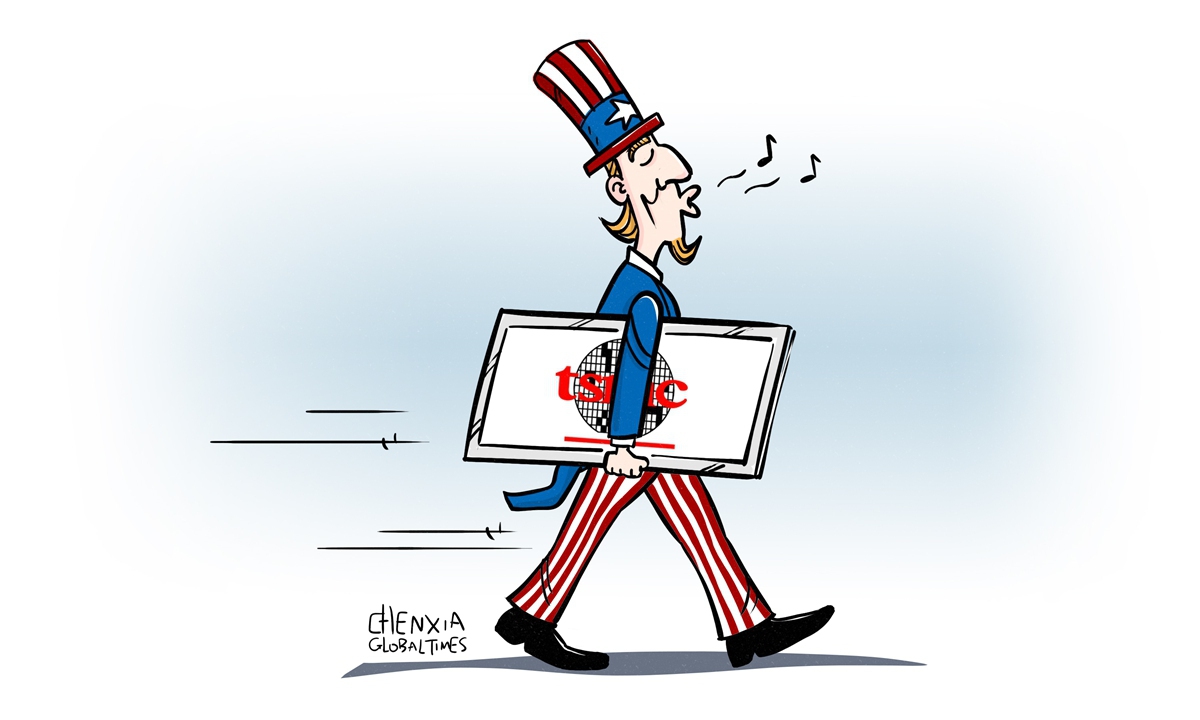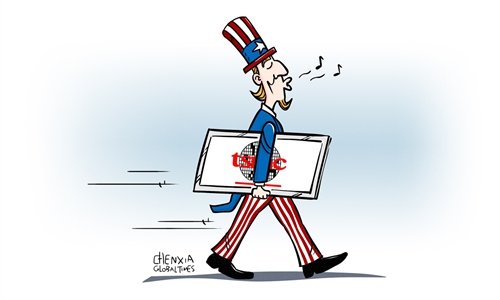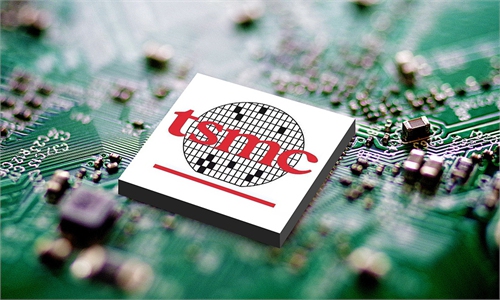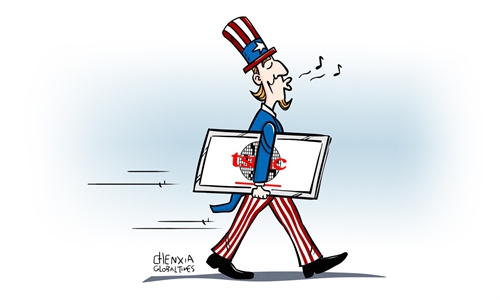
Illustration: Chen Xia/Global Times
Taiwan Semiconductor Manufacturing Company's (TSMC) decision to bring advanced microchip production to the US appears to be facing increasing skepticism these days. The latest example is an article published on Wednesday by The New York Times, which cited 11 anonymous TSMC employees as saying that its US factory could distract from the research and development focus.While the 11 employees don't seem to be representative enough compared with TSMC's some 50,000 employees, US media's focus on the chipmaker's internal tensions may, to a certain extent, underscore the awkward situation faced by the company after its US factory decision. To put it blunt, the market is not optimistic about TSMC's prospects any more.
News came last week that Warren Buffett's Berkshire Hathaway has made a U-turn exit from TSMC, cutting its holding by 86 percent last quarter and sending the chipmaker's stock price down sharply, just three months after disclosing its holding of $4.1 billion shares into the chipmaker.
TSMC is not just out of favor with Berkshire Hathaway. Latest filings show that US institutional investors such as JPMorgan & Chase, Blackrock, and Tiger Global Management were all among the biggest sellers of TSMC shares in the fourth quarter, according to Reuters.
Apparently, TSMC's future outlook in the US is not something to look forward to in the eyes of sophisticated US investors, which is somehow justified given the fact that TSMC's Arizona plant is being built on political considerations, not economic ones.
TSMC itself already said in an earnings call that the US construction could be at least four times the cost in the island of Taiwan, driven by labor expenses, permits, regulatory compliance and inflation.
Moreover, TSMC will also face fierce competition in the US. Intel is also building plants in Arizona that will open as early as 2024. Last year, Chinese mainland customers contributed only about 11 percent of TSMC's total revenue, down by more than a half compared with the previous years. In the short term, this seems to have had a limited impact on TSMC's business. But in the long run, gradually walking away from the world's largest semiconductor market doesn't bode well for its profitability, especially when the global chip demand is slipping into a cyclical contraction.
If anything, these economic consequences are a vivid manifestation of the selfishness and shortsightedness of the Taiwan island's Democratic Progressive Party authorities in ignoring the region's economic future for the sake of political gains. Ever since TSMC sent thousands of its top engineers to the US, the island's semiconductor industry is doomed to wither and maybe even die.
In one of the early signs of the industry decline, US-based Micron Technology, the world's fourth-largest semiconductor manufacturer, reportedly planned to cut about 5 percent of its workforce in the island, according to Taiwan media reports. It was in the middle of last year that Micron just announced plans to add 2,000 jobs in the Taiwan region.
From the overall perspective of the rivalry between the Chinese mainland and the US on semiconductors, the TSMC plant in the US may only represent a stage of the intensifying competition.
Now that there is a clear awareness among the Chinese semiconductor industry that due to the US all-out stranglehold, China's semiconductor has no choice but to rely on their own to make breakthroughs when it comes to the supplies of high-end chips, there is no need to dwell on the gains and losses in the short term.
In the semiconductor sector, the competition between China and the US will be a long-term marathon that requires determination. What has happened is that the US pushed for "decoupling" from the mainland, including forcing semiconductor companies such as TSMC and ASML to cut business ties with the mainland and cracking down on relevant supply chains.
The next stage will be a stalemate as Chinese companies will work out alternative products to meet their needs, with gradual progress seen in high-end chip technologies. With the accumulation of technological breakthroughs, China will eventually enter the final stage by building up its own semiconductor industrial chains to completely thwarting US containment. That would mean TSMC will completely lose the mainland market, and even the Asian market.



